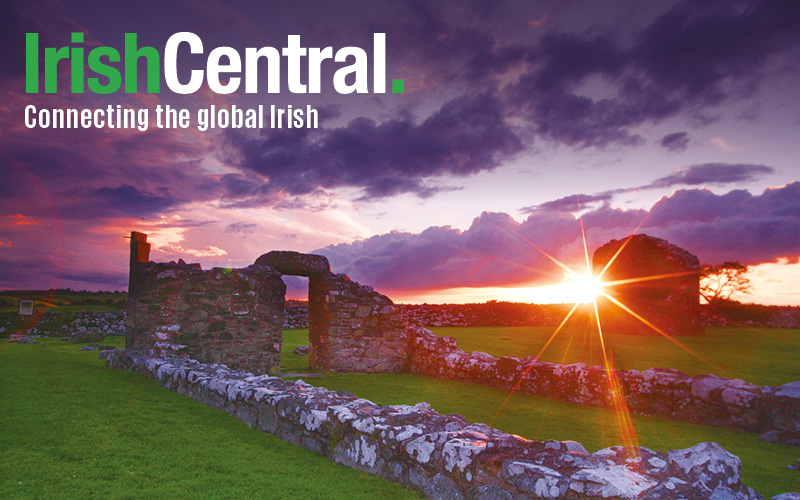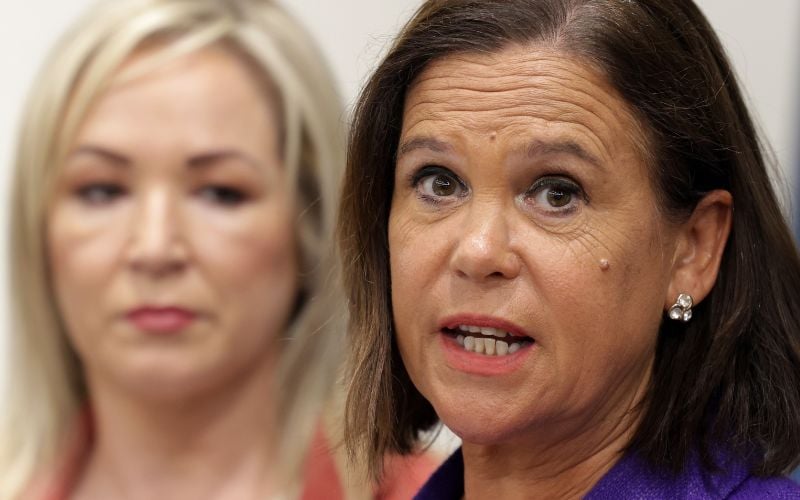President of Ireland Michael D. Higgins delivered the following lecture on Monday, September 30, 2019, at New York's Fordham University for the University's Institute of International Humanitarian Affairs.
By all protocols observed, given the significant number of dignitaries who are gathered here. can I mention a very good friend of mine indeed, and someone whom I have known for over 40 years is Kevin Cahill, and can I just say Kevin, from the very beginning of my many adventures in Central and Latin America, is somebody that I am so pleased with and I thank him for being with me in this moment.
To make a beginning to this lecture, what I’ve entitled “Humanitarianism and the Public Intellectual in Times of Crisis." I very much always enjoy returning to an academic environment. And this is perhaps understandable, having been a university teacher for so much of my life. It was a world I found profoundly rewarding and enriching. But there is no place quite like a university for reflection, the hallowed seat of learning, yes, but more importantly a gathering place of the young and curious who believe that the world need not be as cruel as it is but indeed can be changed.
Read More: Irish President lands in New York for UN General Assembly
Universities can transform people’s lives through education and of course through the wider impact of their research. And universities can help too students to develop their skills and knowledge, and now, perhaps this is the most important of all, I think now given our interacting crises — ecological, economic, social and may I suggest ethical — we turn to universities in near desperation to provide a basis to help us for a broader understanding of the interconnectedness of our social-ecological system.
University research it is claimed, correctly, is potentially of benefit to everyone, with the capacity of intellectual space of enriching society and stimulating culture, and of course while also creating enterprise. However, now it must face its greatest challenge. A moment of truth has arrived for all institutions, including third-level institutions, that of facilitating an exit from a paradigm that has failed humanity and of outlining how we can make our way to a new paradigm that will lead to integrated, sustained eco-social policies of sufficiency and equity. It will no longer be sufficient to train people to run after the bus of disaster but to seek to understand why it is all happening. For what we teach after all is the foundation of policy, and subverting the taken for granted, the authoritarian and the socially dangerous must be the core values of a university.
Indeed I agree with Father McShane, John Hughes, Archbishop of New York, who established this very university St John’s College in 1841, understood instinctively that education is key to active and enriching citizenship for immigrants and to human flourishing. The story of John Hughes’s family is a quintessential Irish-American story: a family who departed Ireland’s shores two centuries ago, families some of whom were forced to leave as a result of hunger or persecution, while others earlier in the 19th century had sought to escape poverty and to build better lives for themselves and their families. Throughout its history, Fordham itself, as an educational institution, has had a commitment to the betterment of society and social justice, both at home and abroad.
In relation to those two waves of migration it is very important as well that the first migration from which, if you like, John Hughes came, they were from South Ulster, north Munster, the many cases, they paid their fare to come. After the revolution of 1798 and the active union of 1800, there was a rumour that the country was finished. Many people who had the means of anything just simply moved. Any they came early, they established themselves early, and so they would be completely different to the tsunami of the desperate who would come in the 1850s.
In America, and elsewhere across the globe, the Irish found refuge and opportunity. They did not escape either the marginalisation or the exploited fear of the Other that is the experience now of too many migrants today. They overcame this and went on to contribute to the economic, social, political and cultural development of their adoptive homes, as today’s migrants are doing all over the world. Here in the United States, we saw a new Irish-American culture emerged as a result of the mingling of these different strands, as it were, of two rich cultures interacting, creating something that is not reducible to either, but which in its transcendence combines the best of both heritages.
Today 17% of Irish citizens are currently living abroad, joining a continuous trend within the 70 million people of Irish descent worldwide. The Irish were not easily either to forget, and it is something indeed that Father McShane mentions, how we must never forget. We too, in fact, were editorialised in the 1840s, suggesting for example that the Irish Famine was an act of God, that the Irish in fact were being punished, as well as that other sometimes as well that they were backward, a hopeless case. And indeed a brilliant philosopher somewhere a hundred years earlier had said that they had never even been occupied by the Romans so how could they have the civilities that other people had.
But I think therefore they didn’t convert to these editorials of the 1840s. A mere 12 years later in 1860, you will find I think in The Times of London a different editorial appears, and it says: “If this goes on as it is likely to go on … the United States will become very Irish… So an Ireland there will still be, but on a colossal scale, and in a new world. We shall only have pushed the Celt Westwards. Then, no longer cooped between the Liffey and the Shannon, he will spread from New York to San Francisco, and keep up the ancient feud at an unforeseen advantage (…). We must gird our loins to encounter the nemesis of seven centuries’ misgovernment. To the end of time a hundred million spread over the largest habitable area in the world, and, confronting us everywhere by sea and land, will remember that their forefathers paid tithe to the Protestant clergy, rent to the absentee landlords, and a forced obedience to the laws which these had made.”
And thus it was to be in a way, but there is, of course, a great challenge in that, one with which I have been engaged as President for the first period of my Presidency. That is, how do you make an ethical commemoration? How do you use memory ethically? Which is for a whole other day and anyway it is all on my website so there it is.
Read More: Cost of inaction on climate change "catastrophic," Irish President tells United Nations
I think that this question of in fact actually putting narrative of the other into one’s consciousness, in such a way that one is able to read and how one knows, as I said in one my poems, who knows come to a point where forgiveness might be possible. Our nation history contains many tragic reminders of the desperate plight of those forced to flee their country. As I’ve been speaking of it, the most acute which of course is that Great Famine of the 1840s. 1 million people died from starvation, further 2.5 million emigrated, the majority to North America, resulting in the halving of the population of the island of Ireland between 1841 and the early 1900s.
It is important to remember that in the census of 1901, of all the people born within the Island of Ireland, a majority of people were living outside of Ireland. And I think that gives you an idea. So the collective memory of the Famine and of the people forced to flee their homes is something that I think must always resonates profoundly in Irish Society.
As a country, we have known what it is to be hungry and to be forced to flee our homes. And it isn’t only that because new research is showing, particularly the excellent work at University College Cork on the famine that many people died on their way to the port. And to actually pay the fare of £3.10 to come to Canada or £5 to go to an American port required that you had something to sell, a cow perhaps or the last implements or whatever. But many died and it is the reason why there is a gap in the figures. Again in relation to others, we have details of where people die but not where they were baptised is because they died on the way and so forth.
I think that this memory of our past has shaped and has continued to shape our values and our sensibilities today, instilling in us a moral calling to help others in need...
Photos, audio and text of President Higgins' Fordham University address about refugees, migration, humanitarianism and the role of universities.https://t.co/tIUD9pcoHG pic.twitter.com/dqeWWK9nHL
— President of Ireland (@PresidentIRL) October 1, 2019
You can read President Higgins' full speech here.




Comments